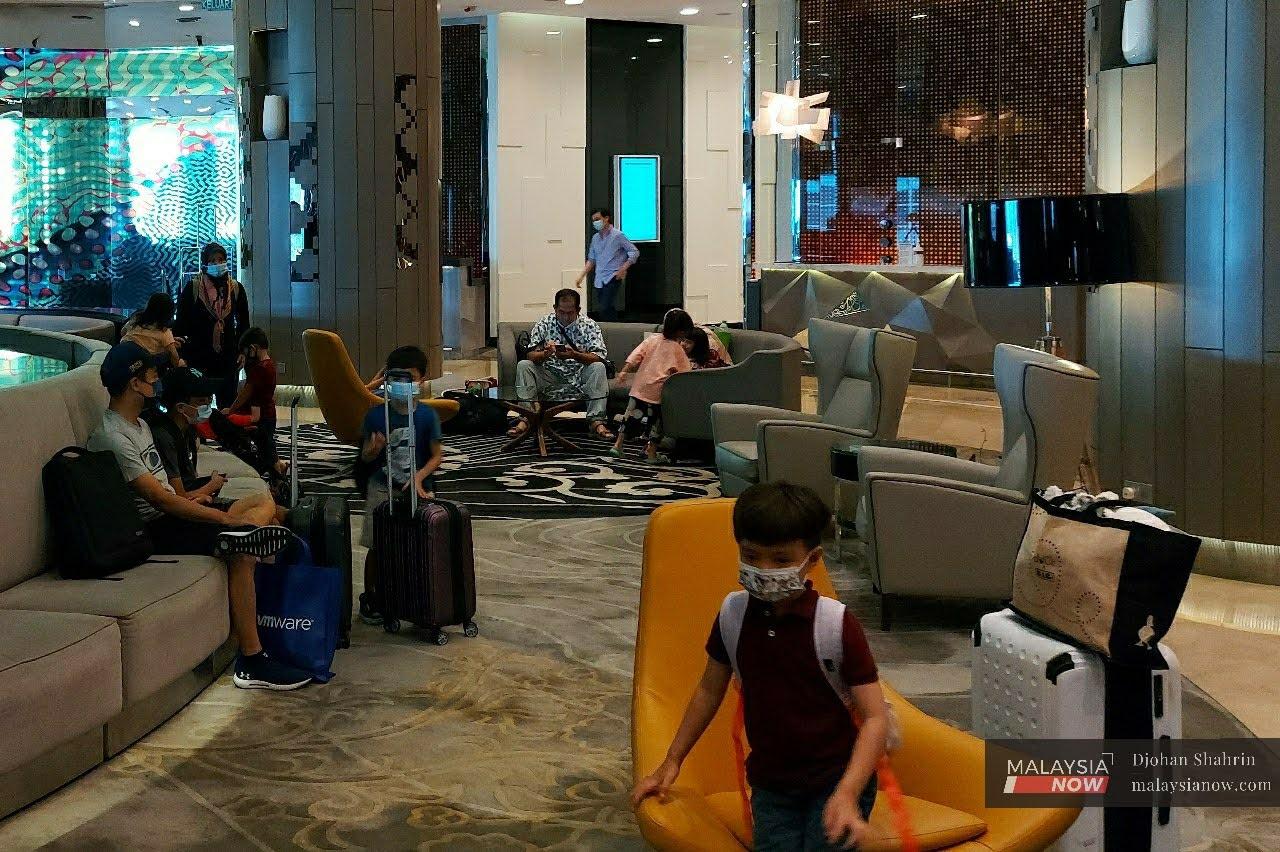Hotels, malls brace for weekend crowds ahead of another pandemic-era Ramadan
Health experts warn of a possible fourth wave if SOPs are ignored.
Malls, hotels and supermarkets have been packed as Malaysians take advantage of the leeway allowed in health SOPs after more than a year of disruptions caused by Covid-19, and the crowds are only expected to grow this weekend ahead of the Ramadan fasting month which begins next week.
The Covid-19 restrictions, ranging from minimal under the recovery movement control order (RMCO) to near-absolute under the enhanced version, continued into the new year with several states including Penang, Selangor and the capital city of Kuala Lumpur still under conditional MCO.
But even the conditional phase, one step up from the MCO which saw only essential services allowed to remain open, is enough to send Malaysians flocking out from their homes.
Hotel operators who spoke to MalaysiaNow said their rooms have been almost fully booked ahead of Ramadan.
Badrul Rezal Baharudin, general manager of Royale Chulan Kuala Lumpur, referred to the change as a “comeback”.
He said up to 80% of the hotel’s rooms have been booked, with halls filled due to functions and events on weekends.
Even on weekdays, at least 70% of the rooms are booked by local travellers.
“It’s been so long since we’ve been busy like this,” Badrul said.
But while he has been eagerly anticipating a revival of such crowds, he acknowledges that the influx of visitors means more challenges in implementing SOPs.

According to the guidelines provided by the National Security Council, hotels must limit the number of guests in halls to 50% of the area’s capacity in order to ensure adherence to the physical distancing rule.
Only a certain number of guests are allowed to use the hotel facilities at any given point, necessitating in some cases reservations upfront.
Such measures would have been more difficult to implement a year ago, Badrul said. At that point, he said, people were still getting used to the new norm.
Now, steps like wearing face masks and checking temperatures are second nature but he is careful about the hotel staff letting their guard down.
“We still need to take the SOPs seriously and ensure that our guests abide by the regulations.”
But in an industry where customer satisfaction is paramount, this is sometimes easier said than done. “We have to be very tactful,” Badrul said.
‘Still adjusting’
Nuruddin Hamzah, who works at a popular supermarket chain in Puncak Alam, Selangor, agreed that it is difficult to ensure that everyone follows the SOPs.
He said he had observed many flouting the physical distancing rule although most customers would follow the directive on face masks and hand sanitiser.
“Most visitors don’t keep a distance between themselves at the checkout counter,” he said. “The only thing keeping them apart is the length of their shopping trolleys.”
He said there had been an increase in the number of customers since the restrictions were relaxed, especially on weekends.
He also noted a drop in the number of online orders, saying most appeared to prefer physical shopping over having to deal with the uncertainty of placing orders online.
Health experts meanwhile said a fourth wave of infections could be forthcoming if SOPs are ignored in the wake of the government’s move to relax restrictions.

Dr Subramaniam Muniandy, president of the Malaysian Medical Association, said this is especially the case at crowded places and ahead of the Ramadan and Hari Raya season.
“It’s possible for a fourth wave to come if someone who has Covid-19 joins in the large crowds at malls,” he told MalaysiaNow.
“The problem is, people are becoming more relaxed. Even if you are vaccinated, you shouldn’t take this virus for granted.”
He also warned of the possibility of mutant variants such as the South African and UK strains.
“In another year, these mutant variants could become very difficult to handle if we are not careful.”
He said the ongoing vaccination programme should not be used as an excuse to disobey the SOPs.
“Though the vaccination may work, it’s not very specific,” he said. “We must look at this from the point of view that we have another year of the pandemic to go.
“Covid-19 is not going to go away easily.”
Subscribe to our newsletter
To be updated with all the latest news and analyses daily.
